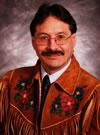Thank you, Mr. Chairman. I'm going to rally through a whole bunch of issues. Maybe I'll start off with part of the discussions that have already taken place. Parking, Mr. Chairman; I think we need to improve that service, not only for Members, but for the general public.
I know that the Cultural Enhancement Commission will be looking into beautifying the outside and the inside and stuff like that. I'm sure I'll have an opportunity to give them some of my thoughts on how I see certain things to be done in terms of enhancing our cultural elements inside the building and outside.
On another issue, in regard to Pages, I think the responsibility should be with the Assembly. I know for accounting purposes I think some is being charged to Members' constituencies and then some to the general pot for their salaries and compensation for the kids getting paid. I think it should be coming out of the general pot from the Assembly.
In regard to staffing, Mr. Chairman, in terms of the number of affirmative action percentages here at the Assembly, it is very low. I would like to see what could be done in that area to increase our percentage in that area.
Another issue that really concerns me, I have even lost track now, Mr. Chairman, as to when I can speak Dogrib. I know that there's a schedule that was produced, but I haven't seen it for months. Different Members can speak their own language, but only periodically. It's not simultaneous as we had years ago where all languages were provided. So that concerns me, Mr. Chairman, especially when here we are promoting all of our official languages in the Territories and we're not using them in the House as much as we should be.
On another issue, Mr. Chairman, in regard to the Speaker's program. I know the Speaker's program, through his office, he used to travel to different communities, went to the schools and talked about the programs and what we do here maybe in a mock thing or as a general assembly in various schools. I recall the former Speaker doing that. They had their own little program in place where they would travel around and talk to students.
I'm not sure if those issues that I raised have been decreased or are being enhanced, Mr. Chairman. So if I could get the Speaker or his staff to maybe comment on the issues that I raised. Mahsi.
